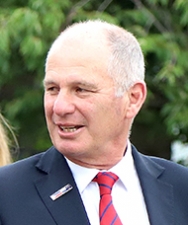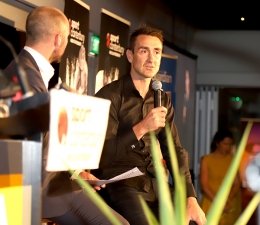Search

 A venture into new territory has proven to be a winning move for Ashburton College’s junior boys’ basketball side.
A venture into new territory has proven to be a winning move for Ashburton College’s junior boys’ basketball side.
The team is this season travelling to Christchurch weekly to compete in the Canterbury under-17 boys’ competition, and after a tough introduction to the city competition they’ve found their stride.
They were well beaten by a slick Christ’s College in week one, but bounced back with wins against Cashmere and Burnside which meant they’d done enough to play their way into the top 16, of 32 teams.
They would now compete over the next eight weeks to try and make the top eight.
Coach Mark Douglas said with training twice a week, and a lot of extra effort being put in, the progress that was being made was encouraging.
“It’s like anything, you put in the hard work and you will get the results,” Douglas said.
With the help of pre-season yoga, kick-boxing and spin to keep everyone fresh, Douglas said they were trying to introduce as many ‘extras’ as they could to expand the boys’ knowledge.
The latest extra is a session with South Island Basketball’s newly appointed high performance manager Mel Downer, a former head coach at the Australian Institute of Sport, on Monday.
Douglas said the session – at the Ashburton College gym from 4pm until 6pm – would be a fantastic learning opportunity, not just for the athletes, but for coaches, too.
“If any coaches wished to sit in on Mel’s training session with the boys they are more than welcome.”
© The Ashburton Guardian - 17 May 2019
 Ross Preece A review of NCEA was long overdue, but some of the proposed changes could take education back around 40 years, Ashburton College principal Ross Preece says.
Ross Preece A review of NCEA was long overdue, but some of the proposed changes could take education back around 40 years, Ashburton College principal Ross Preece says.
While he supported many of the proposed changes, he is concerned about a new literacy assessment standard that would be assessed externally.
The requirement to achieve a pass mark in this would be similar to the old school certificate exams where a pass in English was required to achieve the certificate, regardless of marks in other subjects, he said.
“Many schools with low literacy level kids will be worried about this.
“It may prove an impossible barrier, depending on the school and the kids, and for kids where English is a second language,” he said.
He is concerned the test would also disadvantage students who may be exceptional and achieved high marks in areas such as arts, maths or science but who were not strong in literacy and numeracy.
“This is the thing most principals will be concerned about; it’s fine if you have a school full of advantaged kids, but it’s going back to the high stakes, high anxiety situation – for staff, students and parents.”
Exam focused school certificate and the requirement to pass English created anxiety and the new assessment was likely to create the same anxiety.
Today that anxiety would be more intense because so many students already had high anxiety levels, he said.
Preece applauded the government’s move to scrap NCEA fees saying that would be a significant advantage for cash-strapped families.
“I know of students who passed NCEA but didn’t get credits because their family didn’t have the money for the fee,” Preece said.
There was a remission fee that could be applied for but relied on families completing forms and filing these prior to exams.
There were wins for teachers in the change to having half of 20 credit subjects assessed internally and half externally because of reduced marking time, but for many students that could be quite negative, he said.
“External assessment is less reliable because you know the kids will be more anxious and we know that over the years with NZQA there have been some quite horrendous rogue exams.”
There were fish hooks as well as good and bad elements to the review, Preece said.
“Like all proposals, the devil with this will be in the detail.
“We’re waiting for more information.
“We’ve been given a glossy 16 page report and while it’s well thought out, there are no timelines.
“We’ve got no problems with reviewing NCEA, it’s timely.
“What is worrying every principal is what barriers will this literacy assessment be to overall student achievement – and the nature of this assessment.”
By Sue Newman © The Ashburton Guardian - 16 May 2019
 Hayden Roulston was one of two new inductees to Mid Canterbury’s sporting hall of fame on Friday night. Photo Heather MackenzieTwo of Mid Canterbury’s past sporting heroes were officially given the status of sporting legends on Friday night.
Hayden Roulston was one of two new inductees to Mid Canterbury’s sporting hall of fame on Friday night. Photo Heather MackenzieTwo of Mid Canterbury’s past sporting heroes were officially given the status of sporting legends on Friday night.
At the Mid Canterbury Sports Awards at the Hotel Ashburton, two new sporting legends – Hayden Roulston and Paul Ackerley – were inducted into the Mid Canterbury sporting hall of fame, which will eventually see their pictures grace the walls of Ashburton’s EA Networks Centre.
It was something new that started last year with former Black Sticks hockey player Stacey McKerchar (nee Carr) the first to be inducted, and she had now been joined by cyclist Roulston and another hockey player, the late Ackerley.
Ackerley’s brother and daughter were on hand for the unveiling of the banner, and sat down with the night’s MC James Cochrane to tell the sell-out crowd a bit more about Paul as both a hockey player, and a family man.
Ackerley was a right half who hailed from Ashburton and went on to play for his country, with his biggest achievement as a player being a gold medal he won as part of the New Zealand men’s hockey team at the Montreal Olympics in 1976.
When his playing days finished he continued to have a strong interest in hockey and coached the New Zealand women’s side for six years, taking them to a bronze medal at the 1998 Commonwealth Games in Kuala Lumpur.
Ackerley died in Wellington in 2011, aged 61.
The night’s other inductee, Roulston, now lives in Christchurch and he was on hand for Friday night’s unveiling, sitting down on stage with Cochrane afterwards to tell those gathered a bit more about his stellar career.
Roulston’s career highlights included a silver medal in the men’s 4000m individual pursuit and a bronze medal in the team pursuit at the 2008 Beijing Olympics, and three Commonwealth Games medals – a bronze in the team pursuit in Manchester in 2002, a silver in the points race in Melbourne in 2006, and a silver in the road race in Delhi 2010.
While the results and the medals were great, Roulston told attendees that the biggest highlight of his career was actually the moment he turned pro, when he was flown to Europe to sign his first-ever contract.
Roulston’s cycling career wasn’t all plain sailing though, with a heart issue forcing him off the bike for some time, but experimentation with some alternative remedies helped get him back in the saddle.
He still had dreams of an Olympic gold medal and with that in mind Roulston retired from professional road racing to focus on the track, but it didn’t pan out and in October 2016, Roulston announced his retirement from cycling.
He decided it was time to give back, and he’d since started his own coaching business.
By Erin Tasker © The Ashburton Guardian - 13 May 2019


